Roundtable "The Future of the Judiciary: Discussion of Draft Amendments to Judicial Career Procedures" took place in Kyiv
On November 7, the High Qualifications Commission of Judges (HQCJ) and the High Council of Justice (HCJ), together with the Ukrainian Bar Association, the EU Project Pravo-Justice, and the USAID Justice for All Program, held a roundtable discussion on "The Future of the Judiciary: Discussion of Draft Amendments to Judicial Career Procedures" in Kyiv.
The discussion focused on the draft law "On Amendments to the Law of Ukraine 'On the Judiciary and the Status of Judges' and Certain Legislative Acts of Ukraine on Improving Judicial Career Procedures" No. 10140 and its alternative draft law No. 10140-1.
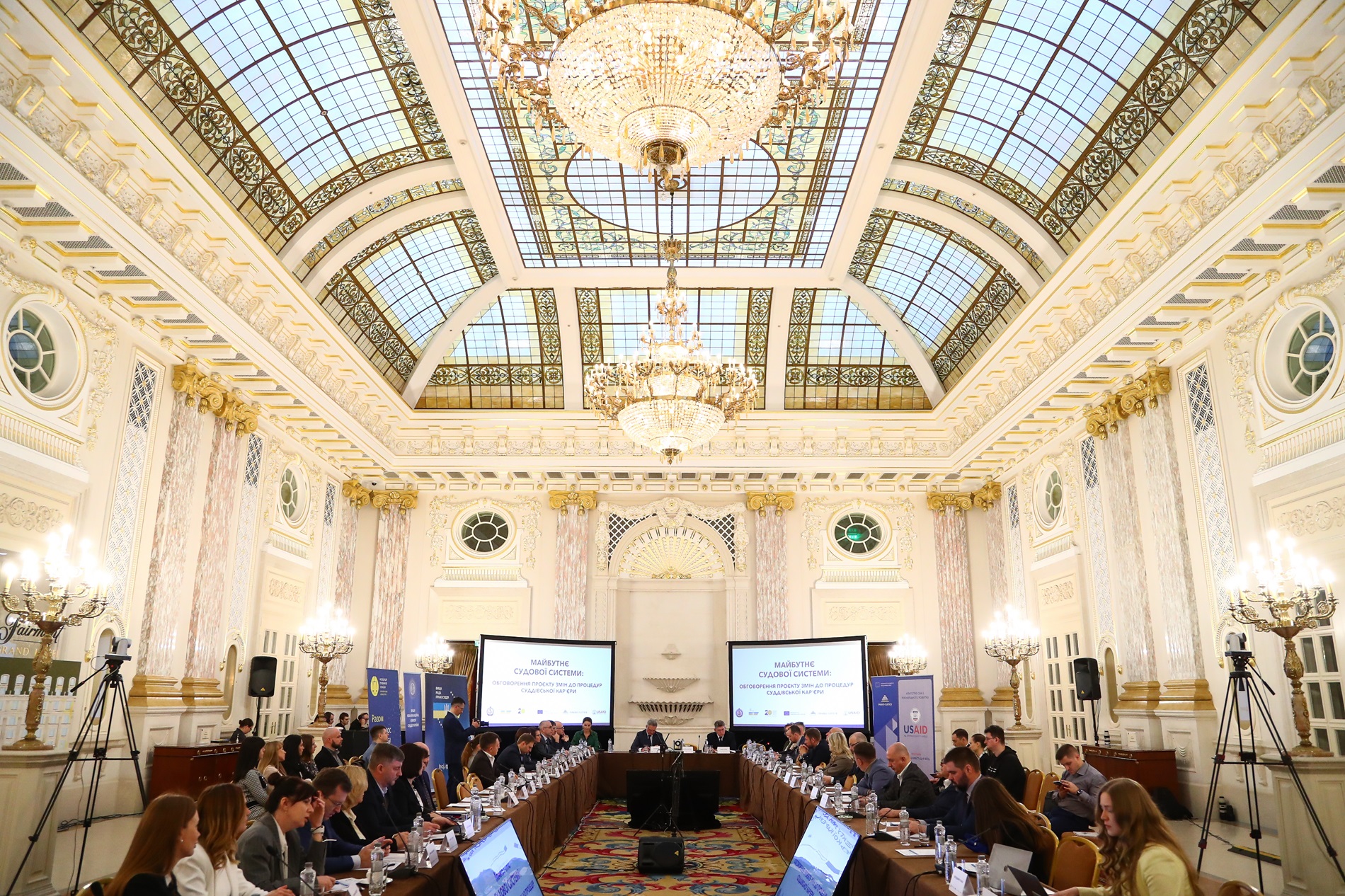
Among the novelties proposed by draft law No. 10140, are:
- clarification of Article 56 of the Law of Ukraine "On the Judiciary and the Status of Judges" with provisions stating that a judge may not be awarded state awards, as well as any other awards, honors, certificates related to the administration of justice on a professional basis, before dismissal or termination of his/her powers;
- substantial revision of the structure of Section IV "Procedure for Holding the Position of a Judge" of the above-mentioned Law and definition of the main criteria of integrity and competence of judges (candidates for the position of a judge);
- establishing a rule that the HCJ will approve the Unified Criteria for Assessing the Integrity and Professional Ethics of a Judge (Judicial Candidate) after consultation with the HQCJ, the Council of Judges of Ukraine and the Public Integrity Council (PIC), which is in line with the measures to implement the State Anti-Corruption Program for 2023-2025;
- establishing a rule that a judicial candidate may be subjected to a psychophysiological examination with the use of a polygraph upon the decision of the HCJ; abolishing the selection exam stage to avoid significant delays in the selection procedure;
- conducting a special inspection after the qualification exam, not before, as is currently the case;
- replacement of special training of candidates for the position of judge with initial training that a person will undergo after being appointed to the position of judge by a Presidential Decree, etc.
Draft law No. 10140-1, for its part, proposes:
- not to enshrine the criteria of integrity and competence of a candidate for the position of a judge;
- not to involve the PIC in the procedure of selection and competition for the position of a local court judge;
- to leave the provisions on the status and activities of the PIC within the framework of Article 87 of the Law of Ukraine "On the Judicial System and Status of Judges", expanding its content and not adding a new chapter to the Law;
- to leave as it is the current version of paragraph 20 of Section III "Final and Transitional Provisions" of the above-mentioned Law.
The roundtable began with welcoming remarks by Hryhorii Usyk, Head of the High Council of Justice, Larysa Rohach, Head of the Cassation Commercial Court within the Supreme Court, Roman Ignatov, Head of the High Qualifications Commission of Judges of Ukraine, Mykola Stetsenko, President of the Ukrainian Bar Association, Anna Ogrenchuk, Immediate Past President of the UBA, Oksana Tsymbrivska, Head of the EU Project Pravo-Justice in Ukraine, and Nataliia Petrova, Deputy Chief of Party of the USAID Justice for All Program.
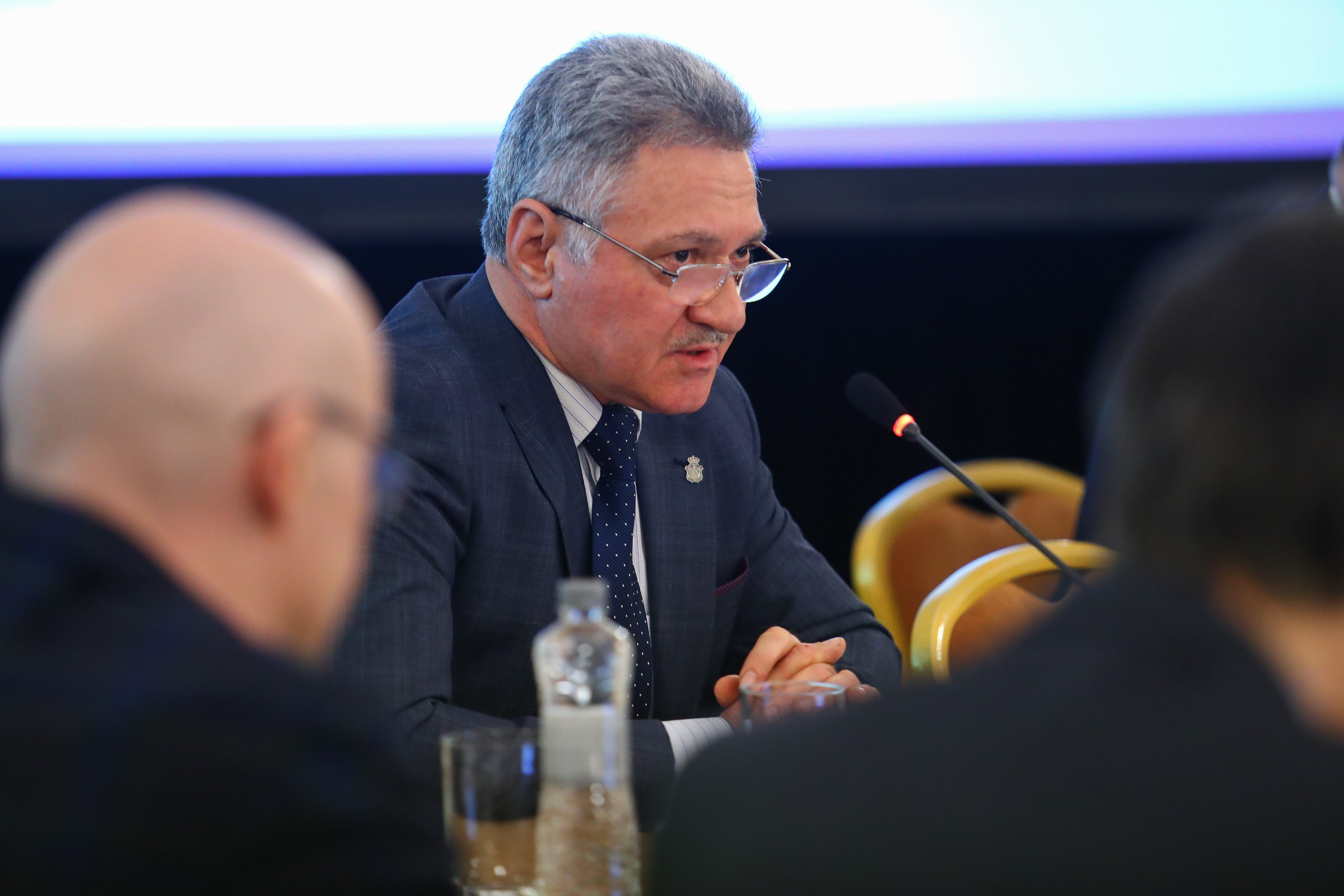
Hryhorii Usyk emphasized the relevance of discussing the directions of judicial system development, in particular, changes in judicial selection procedures, new approaches to judicial evaluation, tasks and challenges that the HCJ, HQCJ, and PIC will face.
According to the HCJ Head, the Public Integrity Council should check candidates for compliance with the criteria of integrity and professional ethics at the stage of approving the rating of candidates or enrolling them in the personnel reserve, and not at the stage of determining the winners of the competition by the Qualification Commission, as proposed.
Mr. Usyk also believes that the provisions of the draft law on psychophysiological examination of a candidate for the position of judge using a polygraph are controversial. He drew attention to the warnings regarding the use of polygraphs contained in the Joint Opinion of the Venice Commission and the Directorate General for Human Rights and the Rule of Law of the Council of Europe.
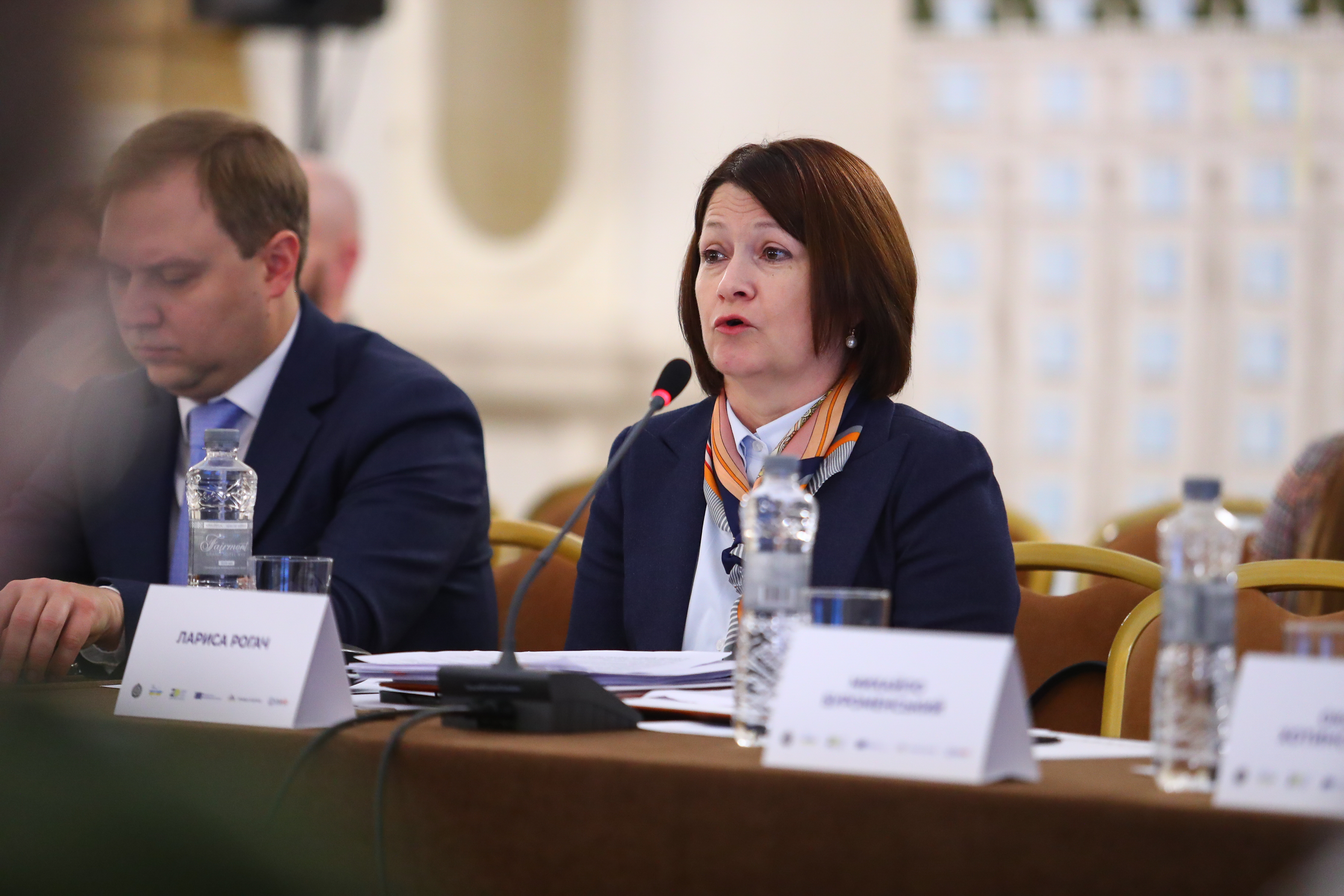
Larysa Rohach emphasized the challenges the judiciary is facing, which have been exacerbated by the full-scale Russian aggression. According to her, 41 judgeships are currently vacant in the Supreme Court, and the current judges are suffering from a heavy workload.
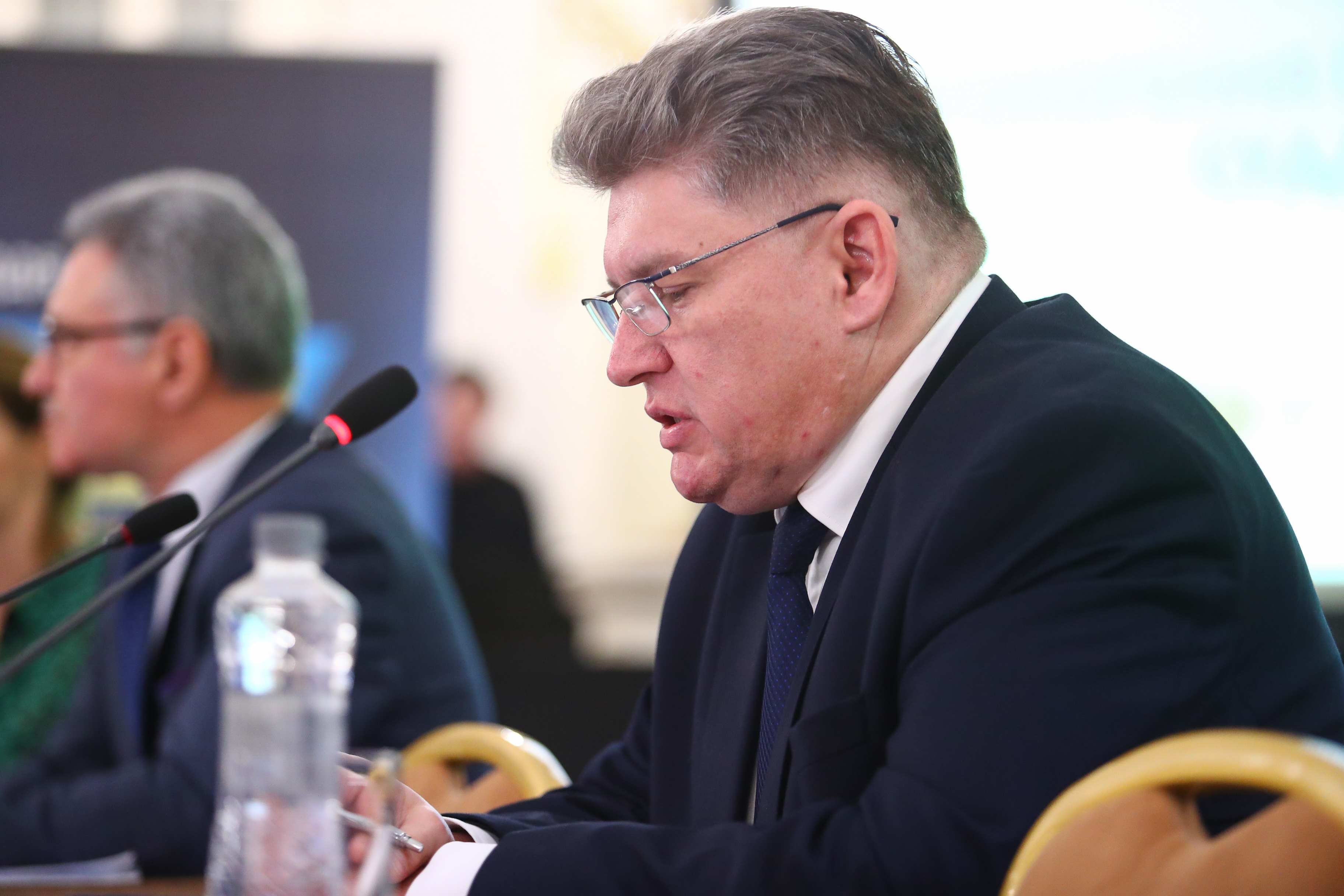
Roman Ihnatov highlighted the relevance of the topic that was discussed at the roundtable and is in the public eye. The Head of the HQCJ called on the participants to engage in a constructive dialogue and join forces to overcome the challenges facing the judiciary of Ukraine.
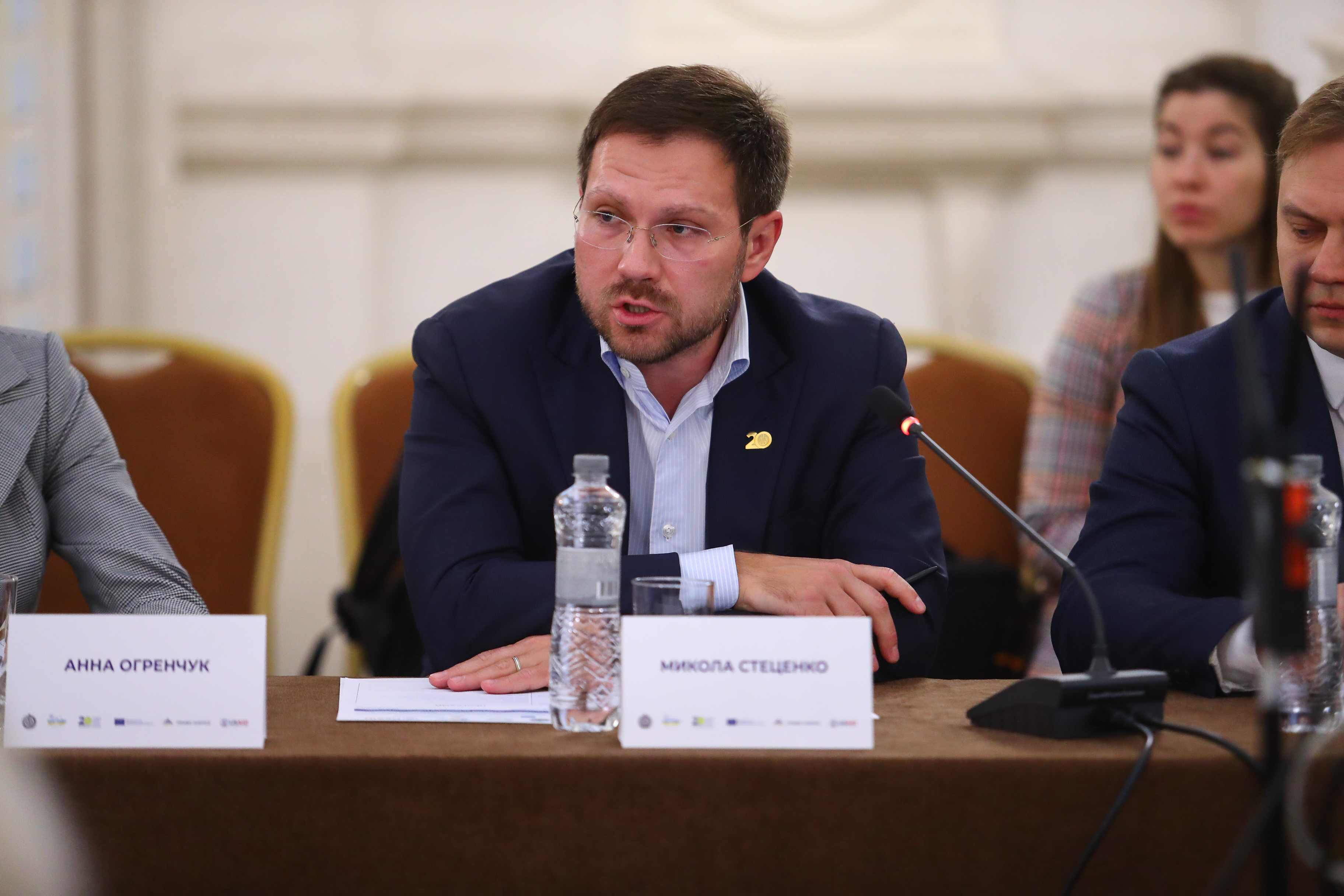

Mykola Stetsenko also stressed on the importance of dialogue between the parties and exchange of views. Anna Ogrenchuk mentioned halving the number of judges in Ukraine who can now administer justice.
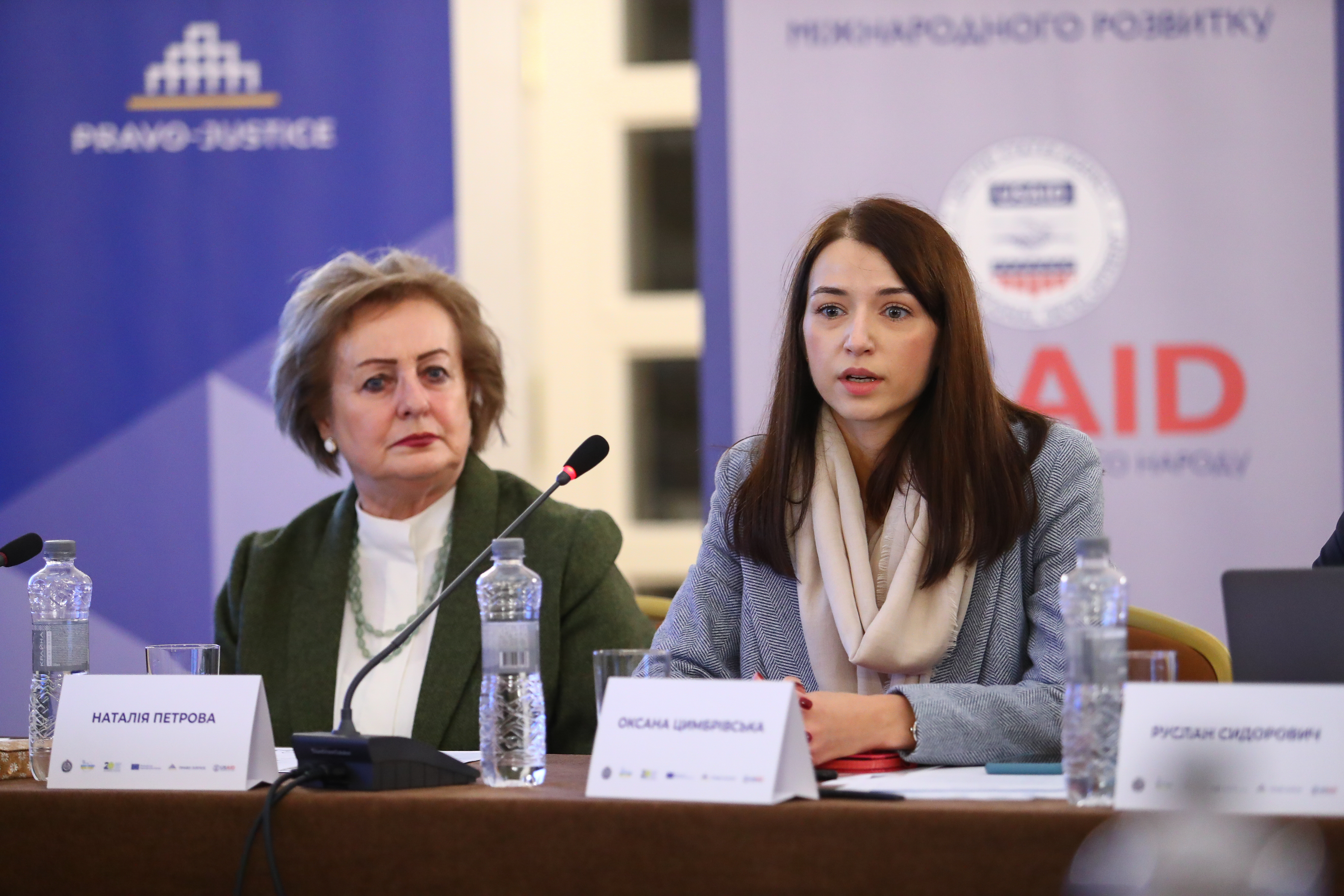
The topic of the first session of the roundtable was "Selection under the new rules: prospects and risks". It was moderated by Roman Sabodash, member of the High Qualification Commission of Judges of Ukraine.
Ruslan Sydorovych, a member of the HQCJ, emphasized the problem of judicial personnel shortage in his speech. He also commented in detail on the Commission's view of changes to certain provisions of the draft law that directly relate to the activities and powers of the HQCJ.
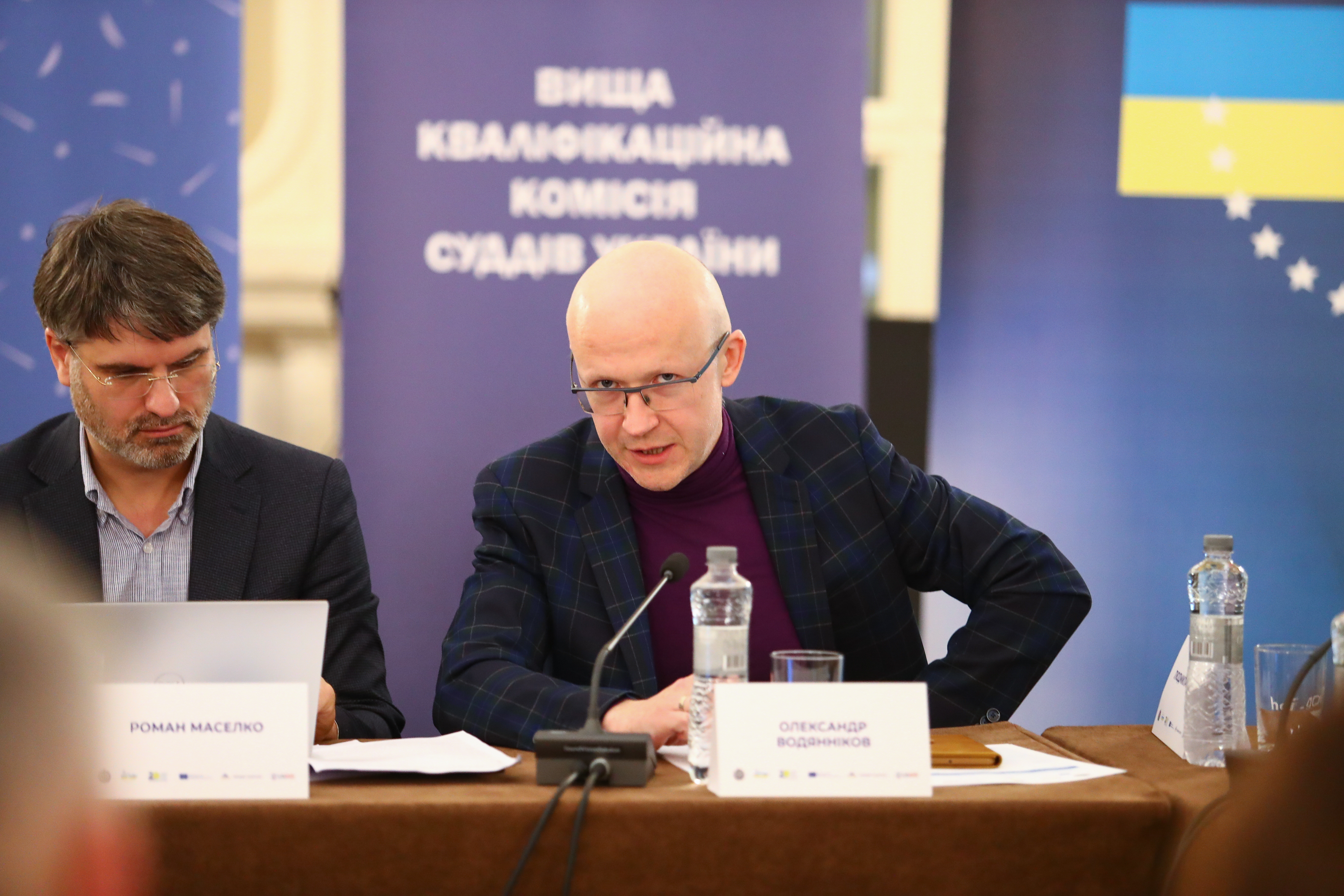
Oleksandr Vodyannikov, Head of the Rule of Law Department at the OSCE Project Coordinator in Ukraine, noted that the draft laws proposed for discussion simplify many things. At the same time, he believes that the polygraph is a "dubious tool" and its use is generally frowned upon in Europe.
The discussion was also joined by Andriy Nyzhnyi, Advisor to the Chairman of the Verkhovna Rada of Ukraine, Mykola Zhuk, Deputy Chairman of the Obolon District Court of Kyiv, and Reda Moliene, former Head of the State Judicial Administration of Lithuania, international expert of EU Pravo-Justice Project.
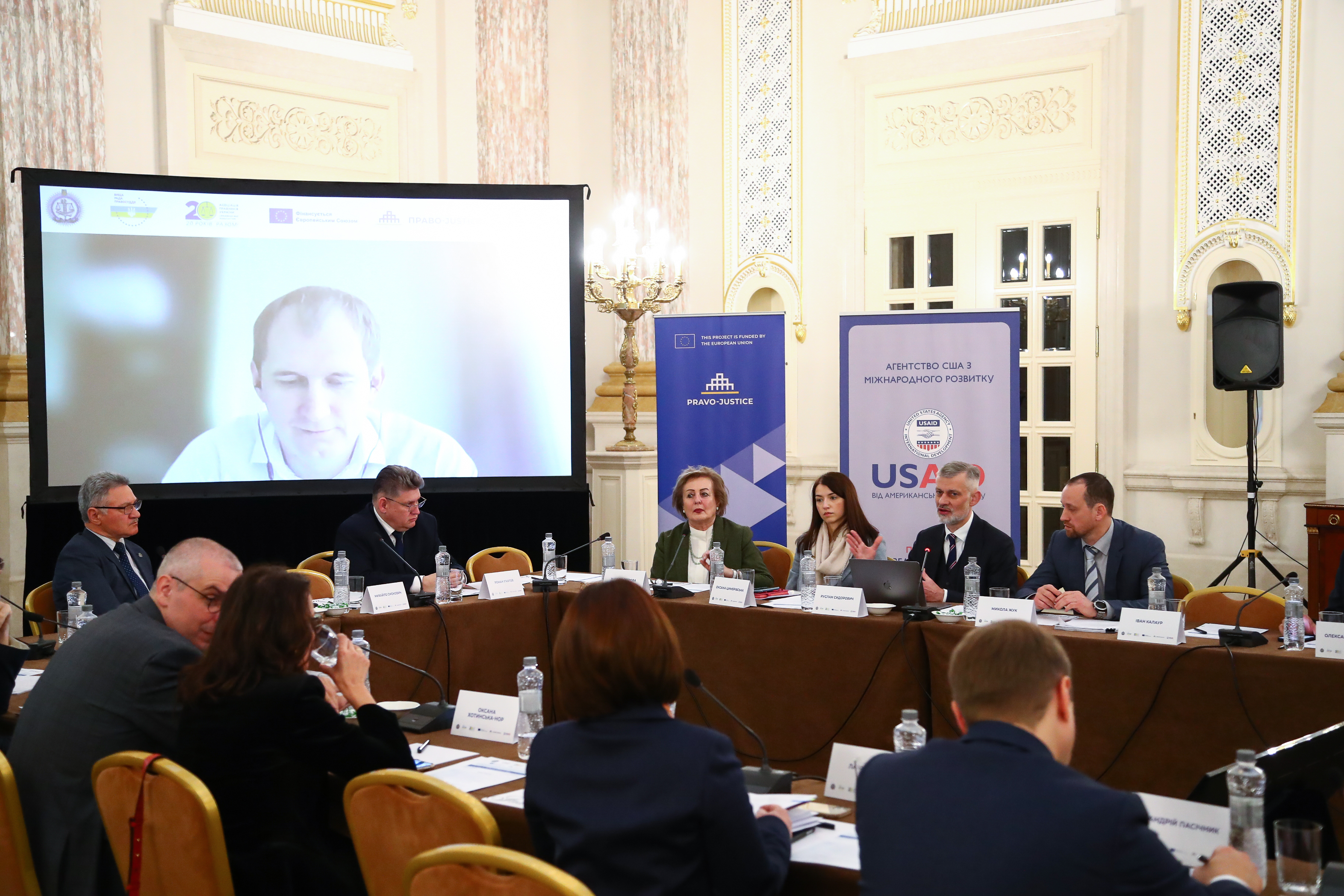
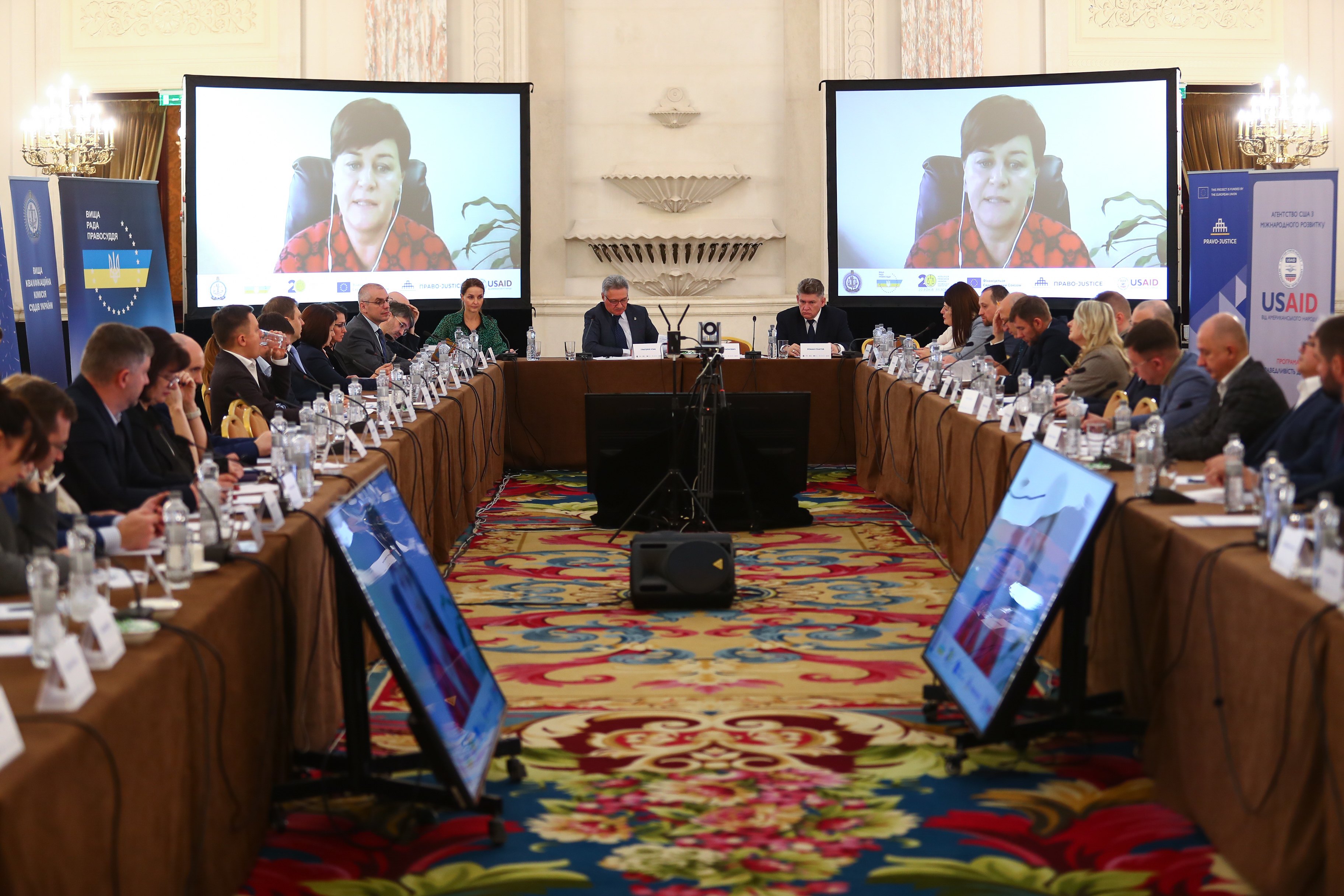
The second session of the roundtable was devoted to new tasks for the Public Integrity Council, as well as challenges and opportunities that the PIC faces. The session was moderated by Andriy Savchuk, Chairman of the UBA Committee on Procedural Law, member of the Public Integrity Council 2016-2020.
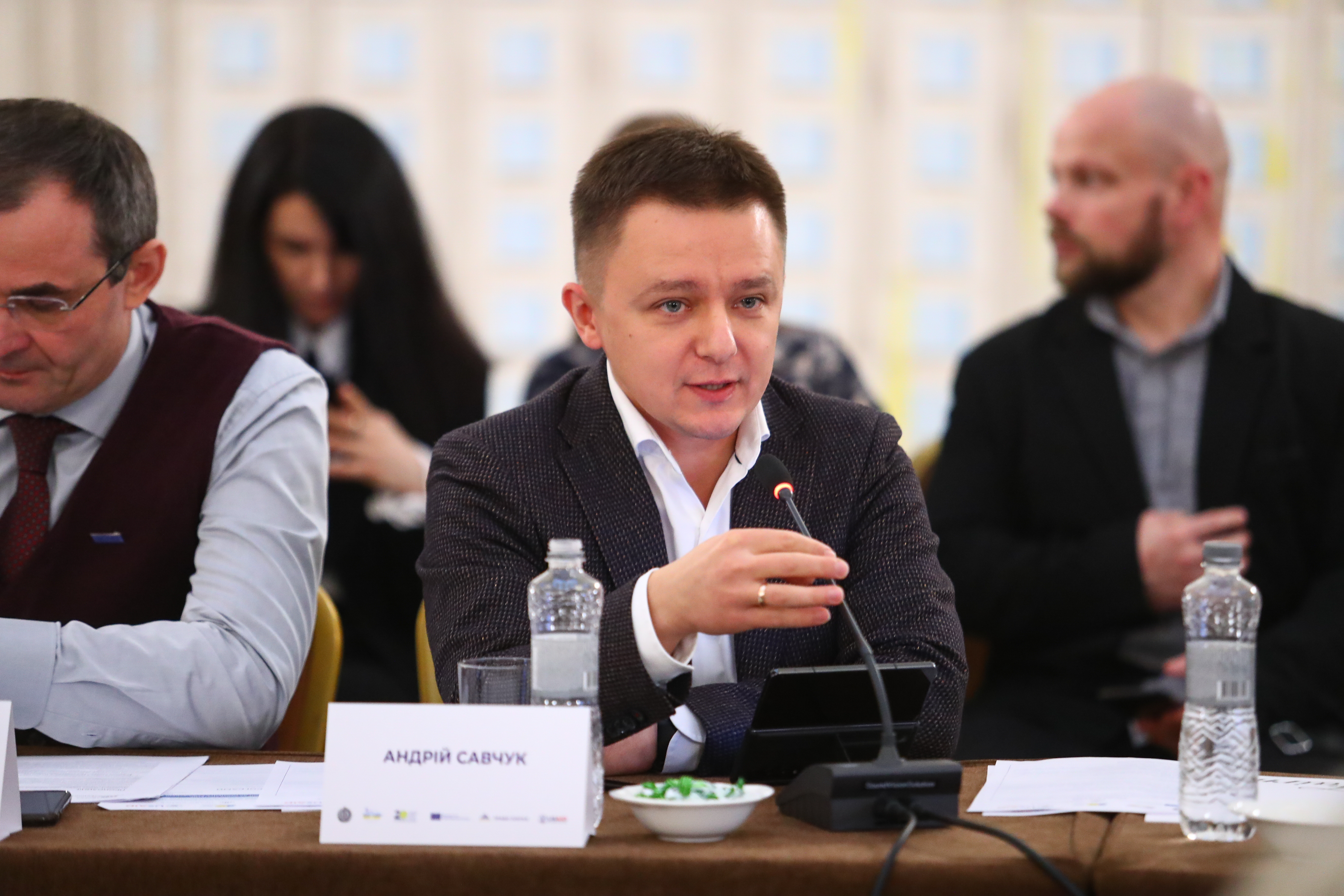
Oleh Yakymiak, attorney, member of the Ukrainian Bar Association, member of the Public Integrity Council, noted that the PIC helped the judiciary, which tends to be closed-minded, "not to fall into chaos" and can continue to help the judiciary "keep its condition in good shape and not to decline."
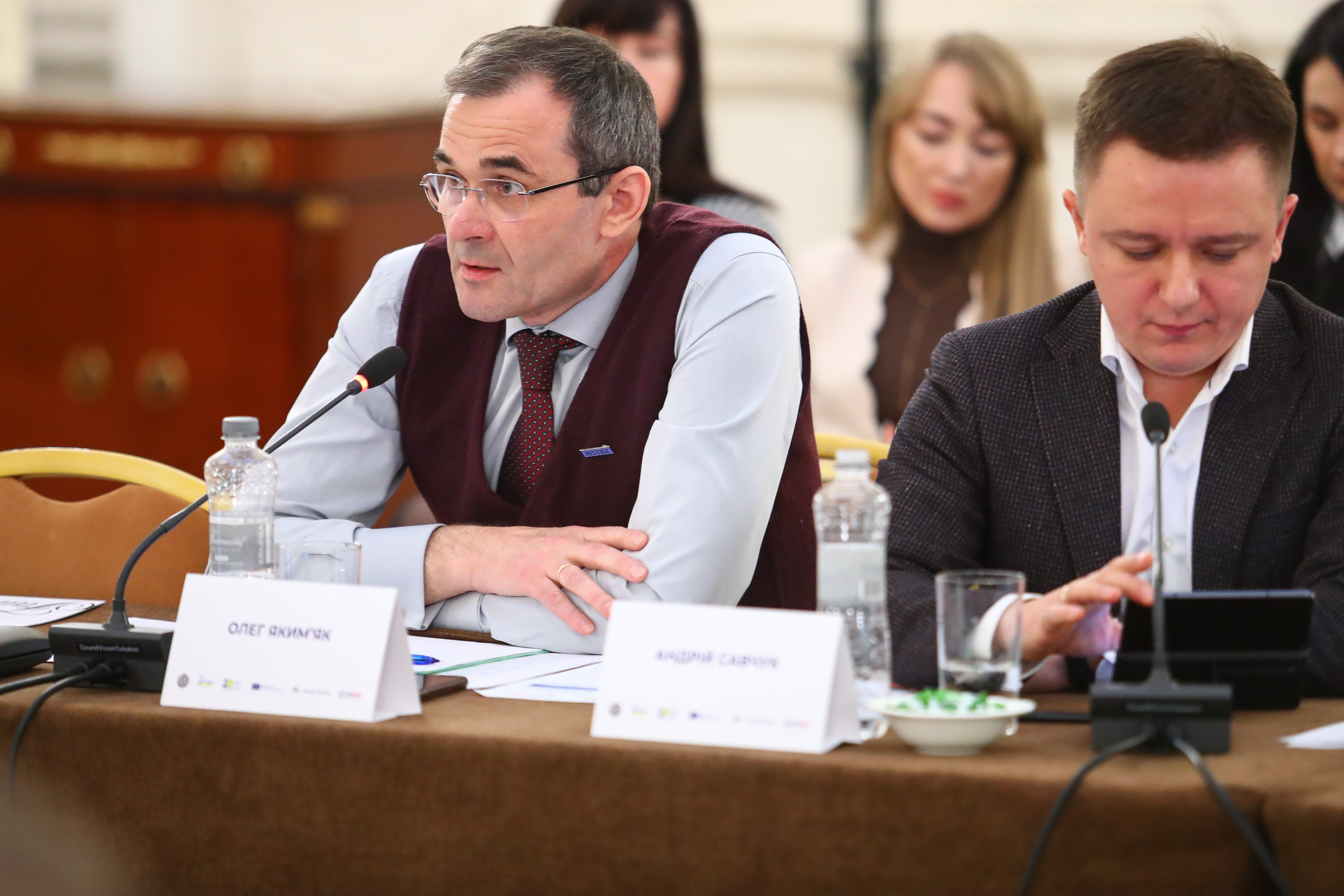
Andriy Pasichnyk, a HQCJ member, emphasized the importance of cooperation between the Commission and the PIC, as well as the importance of access to quality and fair justice, which contributes to public trust in the judiciary.
According to Mykhailo Buromenskyi, public figure, professor, PhD, corresponding member of the National Academy of Legal Sciences of Ukraine, it is necessary to ensure a certain approximation of the PIC and HQCJ approaches, in particular, in the assessment of judicial candidates. He emphasized that in the future there should be no disagreements due to different approaches in this matter.
Dr. Pim Albers, an expert on quality assessment of courts and judicial institutions, USAID Justice for All Program International Expert, former Special Advisor in the Directorate of Human Rights and Legal Affairs of the Council of Europe (EU Commission for the Efficiency of Justice - CEPEJ), and former Coordinating Policy Advisor at the Ministry of Interior and Justice of the Netherlands, addressed, in particular, the appointment of members of the Public Integrity Council, noting that since PIC members are responsible for assessing the integrity of judges and judicial candidates, they must adhere to the highest standards of ethics and integrity in their personal and private lives.
In addition, Mr. Albers emphasized the importance of the PIC having access to the HQCJ registers (judicial dossiers) and of the links between the PIC and the media.
Oleksandr Sasevych, a member of the High Council of Justice, and Mykhailo Zhernakov, Chairman of the Board of the DEJURE Foundation, also took part in the discussion.
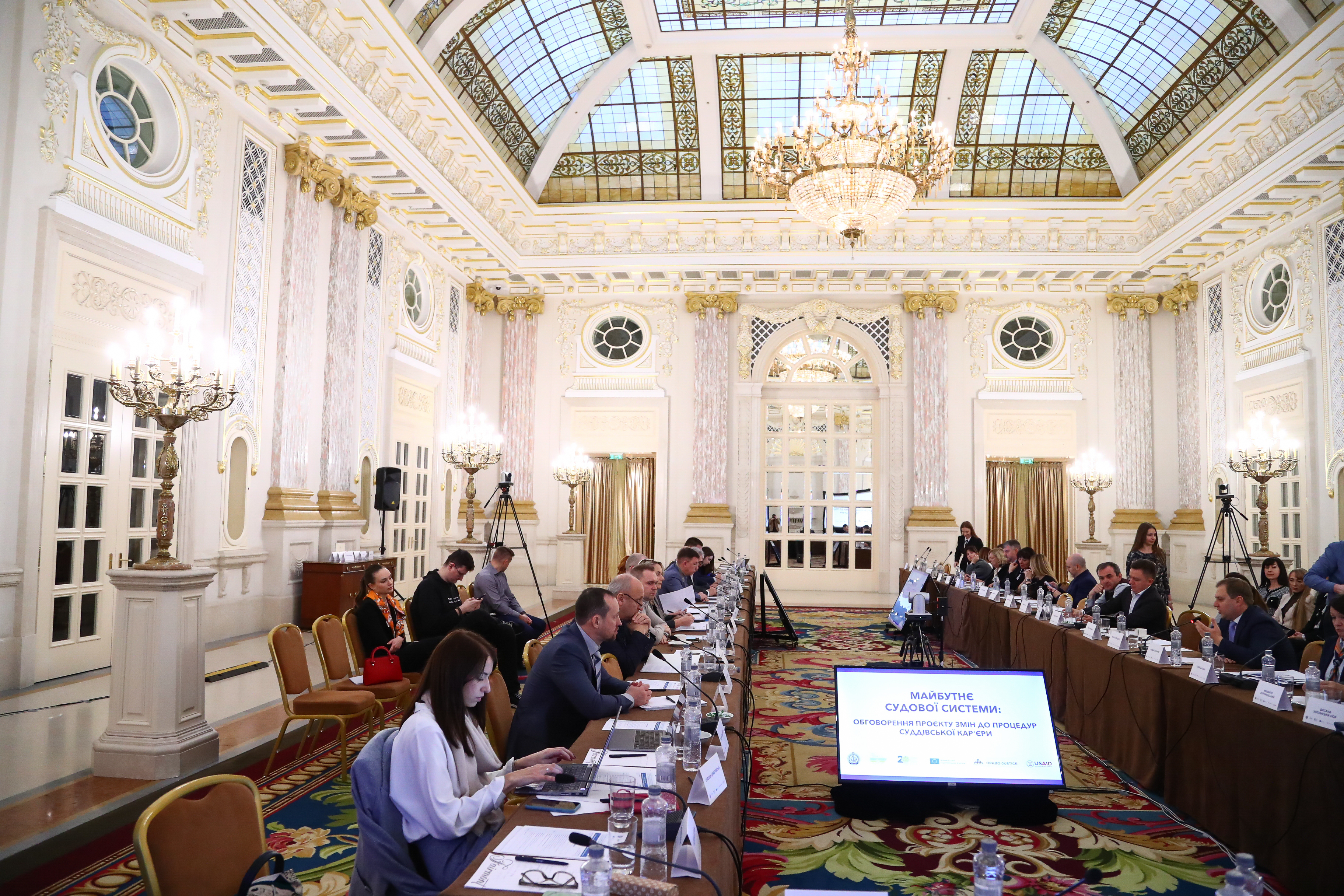
The topic of the third session of the roundtable was new approaches to judicial evaluation. The session was moderated by Vitaliy Hatselyuk, member of the High Qualification Commission of Judges of Ukraine.
Among the panelists were:
- Inna Plakhtiy, member of the High Council of Justice;
- Oleh Koliush, member of the HQCJ;
- Roman Maselko, member of the HCJ;
- Tetyana Strelets, judge of the Administrative Court of Cassation within the Supreme Court;
- Oksana Khotynska-Nor, Head of the Department of Notary, Enforcement Process and Advocacy, Prosecution, Judiciary at the Taras Shevchenko National University of Kyiv Law School;
- Serhiy Riznyk, Doctor of Law, Vice-Rector for Scientific and Pedagogical Work and International Cooperation of Ivan Franko National University of Lviv, Professor of the Department of Constitutional Law.
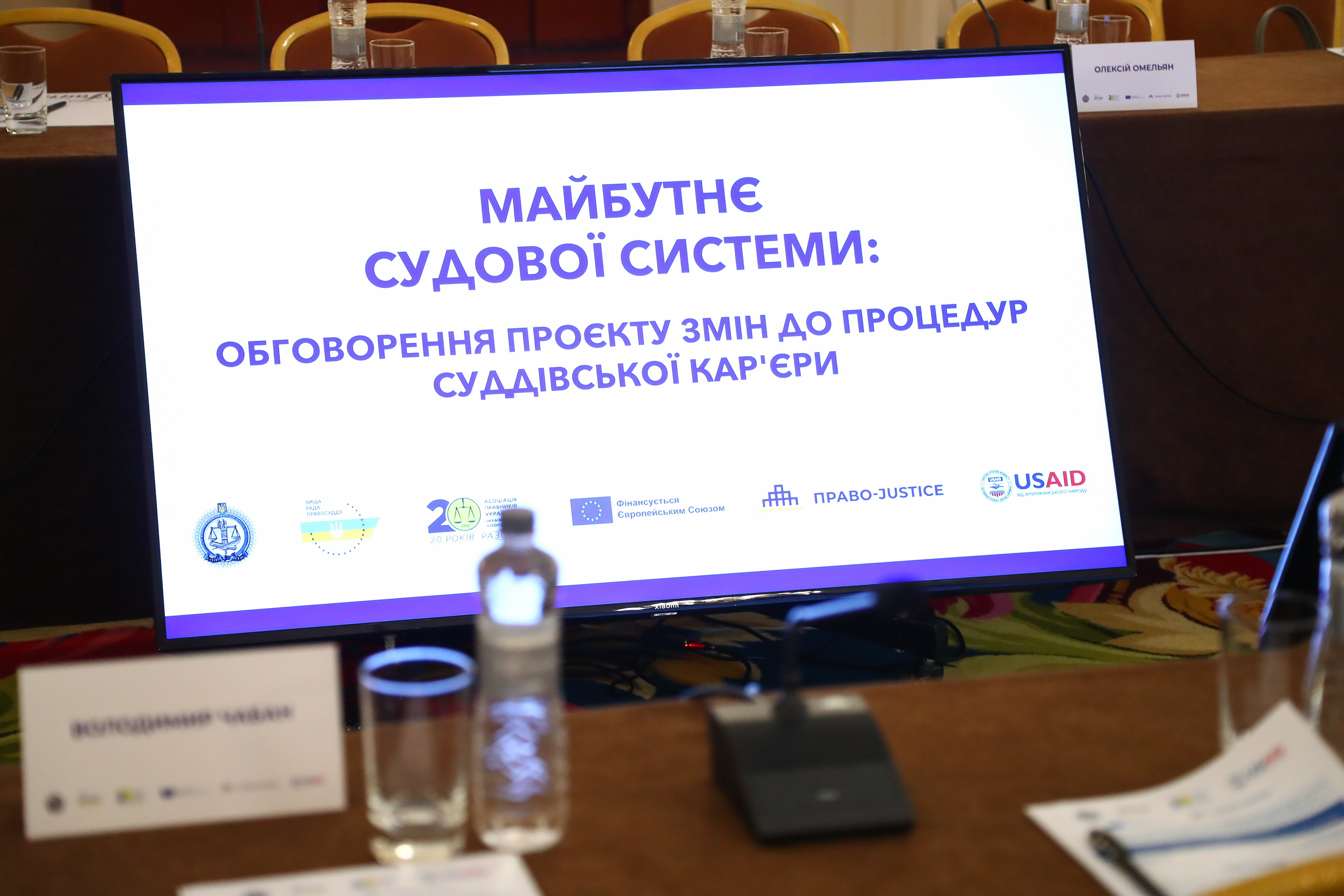
All photos courtesy of the EU Project Pravo-Justice
